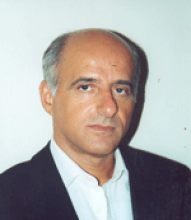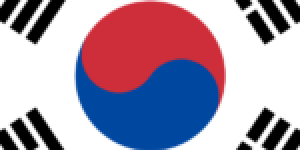Neoliberalism Fueled Far Right Win In First Round Of France’s Snap Election
No Comments yet
C.J. Polychroniou
07-04-2024 ~ The far right led in the first round of France’s parliamentary elections. The second round takes place July 7.
President Emmanuel Macron’s risky gamble to call a snap legislative election after his party suffered a humiliating defeat at the European Parliament elections on June 6-9 did not pay off. In fact, it backfired in a big way as voters, who turned out in record numbers, abandoned the center and cast their ballot for the far right and the left-wing parties that came together to form a new “Popular Front.” But arrogance, such as ripping up labor law and making it easier for companies to fire employees, has defined Macron’s long-term tenure in power (he won office in 2017 and was reelected in 2022) and his political legacy will be as the president who made the far right National Rally the dominant French political party, opening the path that would lead the fascists to power.
Marine Le Pen’s far right National Rally (RN) party came first in the first round of France’s parliamentary elections by securing 33.1 percent of the vote. The leftist New Popular Front (NPF) followed in second place with 27.99 percent, while Macron’s center-right Ensemble alliance came third with just 20.76 percent of the vote. RN did not cross the 289-seat mark for an absolute majority, but as Macron’s prime minister Gabriel Attal said, noting the obvious, the far right is now “at the gates of power” and the second round will indeed be decisive.
According to France’s complicated political system, if no candidate reaches 50 percent in the first round, the top two finishers automatically qualify for the second round, as well as those with over 12.5 percent. Thus, the second voting round, which takes place on July 7, will be a three-way contest, and this will work to the advantage of RN. But indicative of the fear that has spread across the rest of the political spectrum of the prospect of a far right government taking power in Paris, Gabriel Attal said that candidates from the Ensemble alliance that qualify for the second round but have no chance of winning will be withdrawn so as to give non RN candidates the best chance to win, and Jean-Luc Mélenchon, the veteran leftist who leads the NPF, will withdraw all its candidates who placed third in the first round. The strategy is to block RN from gaining any more votes. Even the European Trade Union Confederation chairperson called for a “blockade” of the far right.
Having said that, it must be acknowledged that the first round’s results are nothing short of historic. This is the first time that the far right has won the first round of a French parliamentary election and the prospect of the 28-year-old RN party leader Jordan Bardella being installed as prime minister looms quite large. Indeed, RN is projected to win between 230 and 280 seats once the run-off election is over, a huge bump from the 88 that it had before the National Assembly was dissolved by president Macron on June 9.
Macron is expected to stay on as president until his term expires in 2027, so France will experience yet again one of its political cohabitation moments. The last time France had a divided government was under conservative president Jacques Chirac, with socialist prime minister Lionel Jospin, from 1997 to 2002. The two men clashed openly many times on domestic issues, especially around combatting unemployment. The second round will likely yield a forced “cohabitation” between Macron and a prime minister from another political tendency, so the risk of political paralysis should not be underestimated as the government will surely seek to implement policies that conflict with the president’s plans.
The critical question here is this: How could a party that is a “political heir” of the Vichy regime (i.e., the French government that ruled in collaboration with the Nazis during the occupation) become so popular to the point of becoming the dominant French party? After all, France has a grim colonial legacy but is also a country with long-established progressive values and traditions (for example, unlike in the U.S., in France there were never laws prohibiting interracial marriage, even back in the 18th and 19th centuries) and a rich history of revolutionary politics.
Up until a few decades ago, the far right was a political pariah in France as it was widely regarded to be a danger to democracy. In 1973, the National Front (FN), which was founded a year earlier by Marine Le Pen’s father, Jean-Marie Le Pen, and presented itself as an ultranationalist, anti-communist and xenophobic movement, garnered less than 1 percent of the vote. Back then, the French public would not tolerate an apologist of French colonialism and someone who insisted on the rehabilitation of the Collaborationists. Accordingly, even nearly a decade later, Jean-Marie Le Pen failed to secure enough support from elected officials to run for the presidential election of 1981.
Nonetheless, slowly but gradually, and thanks to deteriorating socioeconomic conditions under President Francois Mitterrand who by 1983 had made a radical neoliberal U-turn and subsequently abandoned his previous commitment to a break with capitalism, the National Front began to make inroads into mainstream French politics, and in 1986 gained its first seats (35 in total) in the National Assembly by winning 9.65 percent of the votes. The party’s electoral success in the 1986 legislative election was also helped by the change made in 1985 by President Mitterrand in the French electoral system from a plurality voting system to a party-list proportional representation system, which made it easier for smaller parties like the National Front to win seats in legislative bodies.
In addition, Mitterrand had also relaxed immigration policy, which led to a substantial increase of immigrants from North Africa, a development that Jean-Marie Le Pen fully exploited. Fearmongering about Islam and Muslim immigrants became one of National Front’s main political priorities, helping Le Pen to win 14.4 percent of the votes in the 1988 presidential election.
In the 2002 presidential election, Le Pen won 16.9 percent of the votes, enough to qualify for a second round of voting. However, this sent shockwaves across French society and sparked a massive anti-FN mobilization. Right, center-right and left politicians came together in order to block Le Pen from winning the second round. Moreover, in one of the largest turnouts on May Day, an estimated 1 million people took part in anti-Le Pen protests across the country. On May 5, Chirac won 80 percent of the vote in the run-off.
In 2007, Le Pen felt confident about that year’s presidential election, especially after he had seen his approval rating in public polls increase after the 2005 riots, but he finished fourth with 10.4 percent of the vote. This was the FN’s weakest showing in a legislative election in over twenty years, and it was not simply because of the criminal investigation that the French authorities had launched against Le Pen two years earlier for antisemitic comments he had made about the Nazi occupation of France during World War II; it was due mainly to the fact that Sarkozy had run on a hard-right campaign based around “law and order” and immigration. In other words, Sarkozy had “stolen Le Pen’s clothes” in his campaign and effectively made the far right’s program and rhetoric integral components of the mainstream right.
In 2011, the National Front’s leadership was transferred to Marine Le Pen, who renamed it the National Rally in 2018. She said that the party had evolved and that it had left behind her father’s racist and fascist ideology. In fact, she had expelled her father from the party in August 2015 after he had reiterated his comments about the Nazi gas chambers. But identity built around the idea of the nation remains at the core of the RN’s ideological framework and the obsession with immigration is still there. Nonetheless, Marine Le Pen has succeeded where her father failed, which is to normalize the vision and politics of the far right, by basically turning down the volume and by also doing impressive ideological somersaults such as her 2017 promise to take France out of the eurozone. And shortly after Steve Bannon spoke at the National Rally congress in 2018, in which he told the audience to wear as a badge of honor the charge that they are racists, Le Pen distanced herself from Donald Trump’s former aide by describing him as an American, not European, with no role to play in the battle to “save Europe.”
But none of these image management tactics would be working if it wasn’t for the appeal that Marine Le Pen’s plans for the economy have for a broad audience. For starters, she opposes free trade and globalization and vows to turn the page on Macronism on key issues and policies which are unpopular with voters, such as labor market reforms and raising the retirement age from 62 to 64. Le Pen champions public services — for French citizens — and presents herself as a protector of workers and farmers. But with regard to nationality and immigration, RN’s policy objectives haven’t really changed since the days of Jean-Marie Le Pen’s National Front: French nationality will be restricted to blood, migrants will be stripped of social benefits, undocumented migrants will be deported, and immigration levels will be cut dramatically.
Le Pen pairs her attacks on immigrants’ rights with an economic vision for France that seeks to transcend the traditional left-right divide on economic policies, and findings before the election showed that French voters trust RN more than any other party when it comes to running the economy. It should not be surprising, therefore, that support for RN in the first round of the snap election surged “in nearly every city, town and village in France.”
Of course, counting on Marine Le Pen to turn her plans for the economy into actual policies in the event that RN forms a government is a risky proposition. Jean-Philippe Tanguy, head of RN’s economic policy, has already gone on record promising fiscal discipline and a pro-business stance. Fascism is a form of capitalism, and fascists have always had a cozy relationship with big business.
Be that as it may, there is hardly any doubt that Macron’s neoliberalism has been the key factor behind the electoral success of RN in the first round of the snap election and in the actual legitimatization of the program of the extreme right. Macron embraced neoliberalism with untamed passion once he became president. Not only that, but he adopted authoritarian politics (such as using constitutional tricks for bypassing the power of the parliament) for the implementation of his unpopular policies and even banned protests and authorized the use of state violence against protesters to the point that made fascism the next logical step. At the same time, Macron and his inner circle have gone to extreme lengths to demonize the left (which, incidentally, faced accusations of antisemitism during the campaign on account of some problematic remarks made by Jean-Luc Mélenchon), yet they begged the left to protect democracy from the surge of the far right.
It is unclear how the General Assembly will be shaped before the second round of voting has been completed. What is clear is that the Macron era is over, as his hold on domestic policy will be severely diminished with a prime minister from the opposition in government. We can also say with a degree of confidence that what lies ahead for French politics, with far-reaching effects across Europe and even other parts of the globe, is a war between the left and the far right. And in such momentous political moments, one has to take sides. As historian Howard Zinn, who had a fondness for French radical politics, used to say: “One can’t be neutral on a moving train.”
The New Popular Front, a coalition of left-wing parties that includes Jean-Luc Mélenchon’s France Unbowed, the Socialist Party, the Communist Party and the Greens, has an ambitious economic program that if, implemented, will put an end to the dominance of neoliberal orthodoxy in France. Among other things, it calls for raising the monthly minimum wage to 1,600 euros (from 1,398 euros), imposing price ceilings on all basic necessities, investing massively in the green transition and public services, and lowering the retirement age to 60. It’s a realistic agenda. While in opposition, NPF is expected to play a crucial role in limiting the damage of a far-right government. With labor unions as allies, strikes will undoubtedly become the primary tool used by NPF to send a message to the government that no decisions that harm workers will be accepted as fait accompli.
In sum, any way you slice it, NPF is the political force most likely to halt the right-wing lurch in French politics.
Copyright © Truthout. May not be reprinted without permission.
C.J. Polychroniou is a political scientist/political economist, author, and journalist who has taught and worked in numerous universities and research centers in Europe and the United States. Currently, his main research interests are in U.S. politics and the political economy of the United States, European economic integration, globalization, climate change and environmental economics, and the deconstruction of neoliberalism’s politico-economic project. He is a regular contributor to Truthout as well as a member of Truthout’s Public Intellectual Project. He has published scores of books and over 1,000 articles which have appeared in a variety of journals, magazines, newspapers and popular news websites. Many of his publications have been translated into a multitude of different languages, including Arabic, Chinese, Croatian, Dutch, French, German, Greek, Italian, Japanese, Portuguese, Russian, Spanish and Turkish. His latest books are Optimism Over Despair: Noam Chomsky On Capitalism, Empire, and Social Change (2017); Climate Crisis and the Global Green New Deal: The Political Economy of Saving the Planet (with Noam Chomsky and Robert Pollin as primary authors, 2020); The Precipice: Neoliberalism, the Pandemic, and the Urgent Need for Radical Change (an anthology of interviews with Noam Chomsky, 2021); and Economics and the Left: Interviews with Progressive Economists (2021).
You May Also Like
Comments
Leave a Reply








